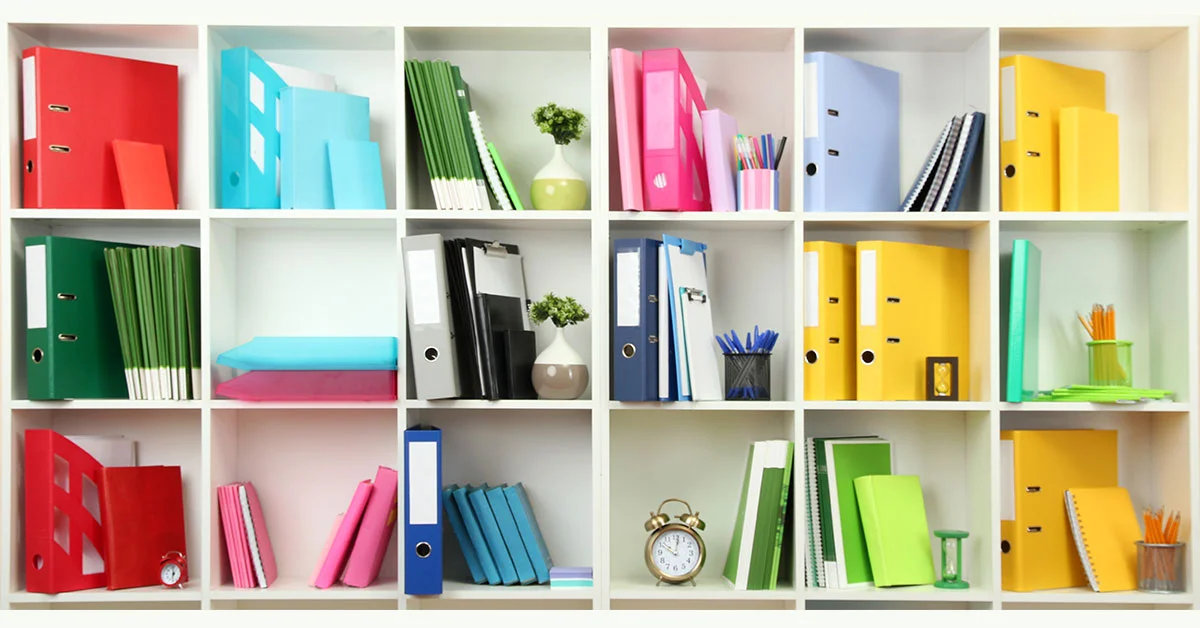Every year at tax season, we all swear we're going to organize our finances so preparation will be easier next year. But then we're caught up in the tax prep and never get around to it. Now that a new fiscal year began on July 1, do yourself a favor and start to get your finances organized now. Here are some tips for getting organized ahead of time.
Organize Your Financial Papers
The first step is to gather everything you can and figure out where to go from there.
Collect all of your bills and financial paperwork.
Even if you get electronic statements for bills, you can use them to create an electronic filing system. Gather all physical paperwork and sort it by type – bills, pay stubs, receipts, investments, taxes (income, property, etc.).
Create a filing system
Make sure it's an easy filing system you'll actually use. What you store things in is less important than that you use and maintain it so if document boxes work better for you than file folders, use boxes. Just pick one that you'll actually use.
How specific the filing gets depends on what works for your habits and personality. One person might have a file for each separate credit card and bank account. Another might do better with one file folder for all utilities, another for all credit card statements, etc. While there is an argument to be made for specificity, it's better to have broad categories that are maintained than a pile of paperwork that never makes it into highly specific files.
If you have a business or side business, keep those financial records separate from your personal ones. Mixing the two will cause confusion and problems.
Pick a staging area
Most people don't have the time to pay a bill the second it comes in and file it immediately. Letting mail lay around anywhere will undermine the filing system you just made. Select a spot, preferably a small one, where all incoming financial papers and bills go until handled and then make a vow to yourself that you'll process them every week. For best results, pick a day of the week and stick to it. Set an ongoing appointment in your phone to remind you until it becomes a habit.
How to Pursue Your Personal Financial Goals
Once the basics are organized, you can start really getting your finances in order, make them more secure, and pursue your financial goals.
Get your credit report
The FTC explains how to get a free copy of your credit report. You're entitled to one report each for free each year from the three credit reporting agencies – Equifax, Experian, and TransUnion. Experts recommend spreading out the free requests instead of getting them all at once. That way you know sooner if something incorrect is reported or if there's a problem.
Check your credit report for open bank or credit cards you might have forgotten. That's especially likely with store cards. Close ones you don't use to limit your financial risk and avoid problems in general.
Make a budget
Now that you have everything together, look over your income and expenses. Make a reasonable budget you can maintain.
Set financial goals
Whether you want to have a financial nest egg for emergencies, save for a big purchase, etc., now that you have a clearer view of your finances, you can more easily pursue it.
Getting your finances in order will provide more peace of mind, security, and make your tax preparation easier. The best time to start is now.
Shred Securely with Storage Quarters
Secure your financial records with the document security experts at Storage Quarters. Whether you want to store or digitize your financial records, Storage Quarters will keep your vital records safe and secure. To get a free quote or book our services, contact Storage Quarters today.

